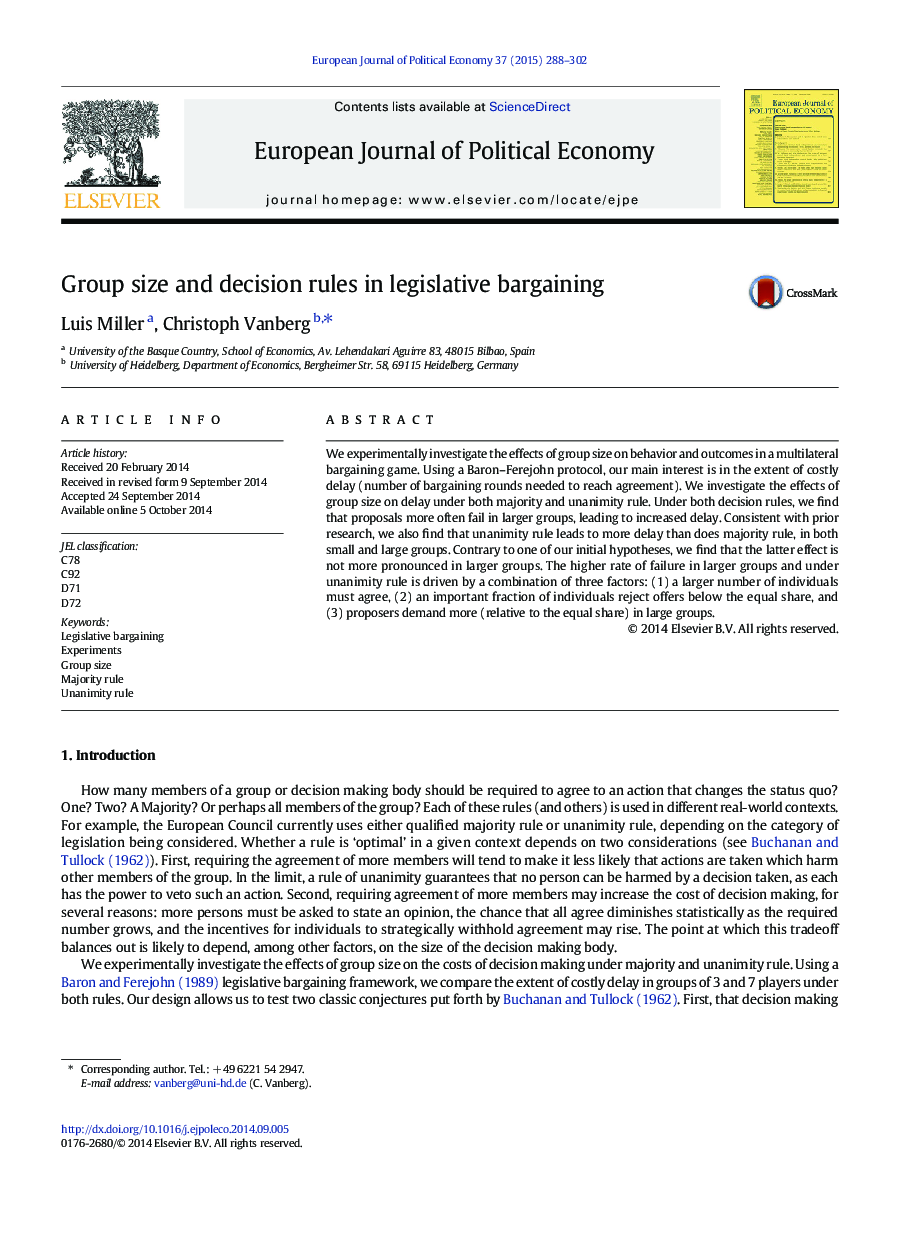| Article ID | Journal | Published Year | Pages | File Type |
|---|---|---|---|---|
| 5067980 | European Journal of Political Economy | 2015 | 15 Pages |
â¢We conduct Baron-Ferejohn experiments with different group sizes and decision rules.â¢We find significantly more delay in large groups and under unanimity rule.â¢We investigate the reasons underlying these effects.
We experimentally investigate the effects of group size on behavior and outcomes in a multilateral bargaining game. Using a Baron-Ferejohn protocol, our main interest is in the extent of costly delay (number of bargaining rounds needed to reach agreement). We investigate the effects of group size on delay under both majority and unanimity rule. Under both decision rules, we find that proposals more often fail in larger groups, leading to increased delay. Consistent with prior research, we also find that unanimity rule leads to more delay than does majority rule, in both small and large groups. Contrary to one of our initial hypotheses, we find that the latter effect is not more pronounced in larger groups. The higher rate of failure in larger groups and under unanimity rule is driven by a combination of three factors: (1) a larger number of individuals must agree, (2) an important fraction of individuals reject offers below the equal share, and (3) proposers demand more (relative to the equal share) in large groups.
